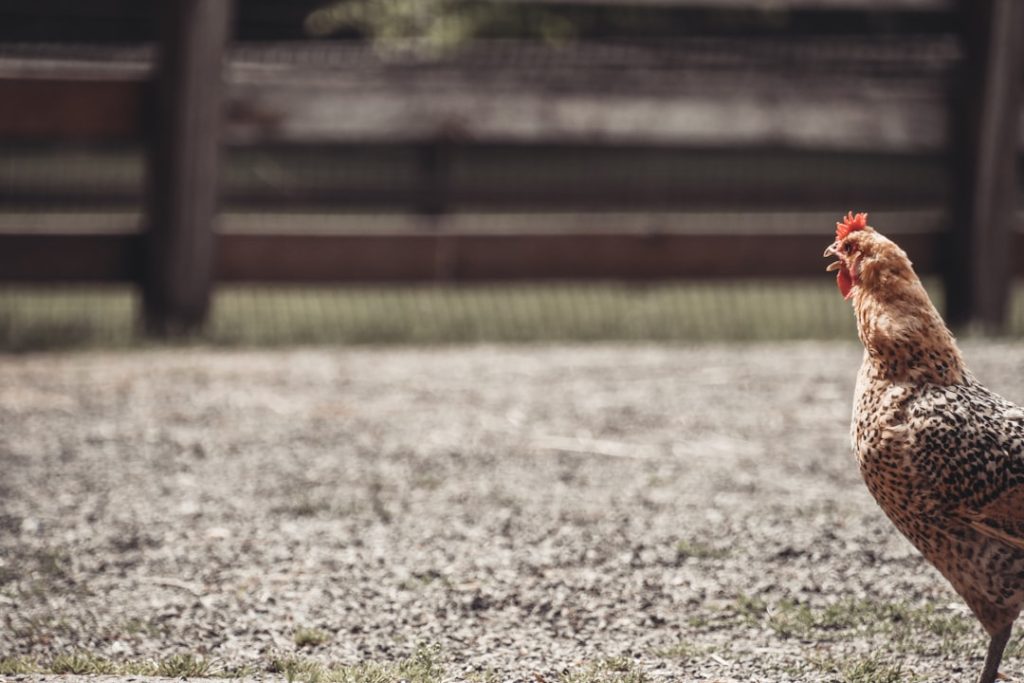Chicken keeping has gained popularity in the United Kingdom, with individuals across rural and urban areas embracing the practice for various reasons, including fresh egg production, natural pest control, and companionship. While chickens are generally low-maintenance animals adaptable to different environments, prospective keepers must be aware of the legal obligations associated with raising these birds. In the UK, chicken ownership comes with specific regulations and responsibilities that must be adhered to, regardless of the keeper’s location or the size of their flock.
These legal requirements are designed to ensure the welfare of the chickens, protect public health, and maintain good relations with neighbours. Before establishing a chicken coop, it is crucial for individuals to familiarise themselves with the relevant laws and regulations. These may include restrictions on the number of chickens allowed, guidelines for coop construction and placement, noise control measures, and health and hygiene standards.
Additionally, keepers may need to register their flock with the appropriate authorities, depending on the number of birds they intend to keep. Understanding and complying with these legal requirements is essential for anyone considering chicken keeping in the UK. By doing so, individuals can enjoy the benefits of raising chickens while avoiding potential legal issues and ensuring the well-being of their flock and the surrounding community.
Table of Contents
- 1 Understanding the Legal Requirements for Keeping Chickens
- 2 Obtaining a Licence for Keeping Chickens
- 3 Exceptions to the Licensing Requirement
- 4 Responsibilities of Chicken Owners
- 5 Consequences of Keeping Chickens Without a Licence
- 6 Conclusion and Resources for Further Information
- 7 FAQs
- 7.1 What are the regulations for keeping chickens in the UK?
- 7.2 Do I need planning permission to keep chickens in my garden?
- 7.3 Are there any specific rules for keeping chickens in urban areas?
- 7.4 Do I need to provide a specific type of housing for my chickens?
- 7.5 Do I need to follow any biosecurity measures when keeping chickens?
Key Takeaways
- Keeping chickens in the UK is a popular and rewarding hobby for many people.
- Understanding the legal requirements for keeping chickens is essential to avoid potential consequences.
- Obtaining a licence for keeping chickens may be necessary depending on the local regulations.
- There are exceptions to the licensing requirement, such as keeping chickens for personal use or on small-scale farms.
- Chicken owners have responsibilities to ensure the welfare and safety of their birds, as well as to comply with regulations.
Understanding the Legal Requirements for Keeping Chickens
Animal Welfare Act 2006
In the UK, there are legal requirements for keeping chickens that are designed to ensure the welfare of the birds and the safety of the public. The main legislation that governs the keeping of chickens is the Animal Welfare Act 2006, which outlines the responsibilities of animal owners to provide for the welfare needs of their animals. This includes providing a suitable environment, a proper diet, the ability to exhibit normal behavior patterns, and protection from pain, suffering, injury, and disease.
Local Bylaws and Regulations
In addition to the Animal Welfare Act, there may be local bylaws or regulations that govern the keeping of chickens in specific areas. It’s important to research and understand these regulations before starting your own chicken coop. For example, some local councils may have restrictions on the number of chickens you can keep or the distance your coop must be from neighboring properties.
Compliance with the Law
By understanding the legal requirements for keeping chickens, you can ensure that you are compliant with the law and able to enjoy your flock without any legal issues.
Obtaining a Licence for Keeping Chickens

In some cases, obtaining a licence may be required for keeping chickens in the UK. This is typically the case if you plan to keep a larger number of chickens or if you are keeping them for commercial purposes. The specific requirements for obtaining a licence can vary depending on your location and the number of chickens you plan to keep.
In general, you will need to demonstrate that you have suitable facilities for housing and caring for the chickens, as well as a plan for managing waste and preventing the spread of disease. To obtain a licence for keeping chickens, you will need to contact your local council or animal welfare authority to inquire about the specific requirements and application process. It’s important to start this process well in advance of acquiring your chickens, as obtaining a licence can take time and may require certain preparations to be made to your property.
By obtaining a licence for keeping chickens, you can ensure that you are compliant with the law and able to enjoy your flock without any legal issues.
Exceptions to the Licensing Requirement
While obtaining a licence may be required for keeping chickens in certain circumstances, there are also exceptions to this requirement. For example, if you are keeping a small number of chickens for personal use and not for commercial purposes, you may not need a licence. The specific criteria for these exceptions can vary depending on your location, so it’s important to research and understand the regulations that apply to your situation.
In some cases, there may also be exemptions for certain types of chicken coops or housing arrangements. For example, if you are using mobile or temporary housing for your chickens, you may not need a licence. Again, it’s important to research and understand the specific regulations that apply to your situation to ensure that you are compliant with the law.
By understanding the exceptions to the licensing requirement, you can determine whether or not you need a licence for keeping chickens and ensure that you are compliant with the law.
Responsibilities of Chicken Owners
As a chicken owner in the UK, it’s important to understand and fulfill your responsibilities for caring for your flock. This includes providing suitable housing and living conditions for the chickens, ensuring they have access to a proper diet and clean water, and protecting them from pain, suffering, injury, and disease. Additionally, you are responsible for managing waste from your chickens in a way that prevents pollution and minimizes any negative impact on the environment.
It’s also important to monitor the health and welfare of your chickens on a regular basis and seek veterinary care if they become ill or injured. By fulfilling these responsibilities, you can ensure that your chickens are well cared for and that you are compliant with the legal requirements for keeping chickens in the UK.
Consequences of Keeping Chickens Without a Licence

Consequences of Non-Compliance
Failure to comply with the legal requirements for keeping chickens in the UK can result in serious consequences. These may include fines, legal action, or even having your chickens removed from your property. Moreover, neglecting to provide for the welfare needs of your chickens can lead to prosecution under the Animal Welfare Act 2006.
Importance of Compliance
On the other hand, by understanding and complying with the legal requirements for keeping chickens in the UK, you can avoid these consequences and enjoy your flock without any legal issues.
Ensuring a Safe and Healthy Environment
It is essential to prioritize the welfare and well-being of your chickens by providing a safe and healthy environment that meets their needs. This includes ensuring they have access to adequate food, water, shelter, and veterinary care. By doing so, you can create a thriving and happy flock while also avoiding any legal repercussions.
Conclusion and Resources for Further Information
In conclusion, keeping chickens can be a rewarding experience, but it’s important to understand and comply with the legal requirements for doing so in the UK. By researching and understanding the regulations that apply to your situation, obtaining any necessary licences, and fulfilling your responsibilities as a chicken owner, you can ensure that you are compliant with the law and able to enjoy your flock without any legal issues. For further information on keeping chickens in the UK, you can contact your local council or animal welfare authority, as well as consult resources such as The Royal Society for the Prevention of Cruelty to Animals (RSPCA) or The Department for Environment, Food & Rural Affairs (DEFRA).
These organizations can provide guidance on the legal requirements for keeping chickens and offer resources to help you care for your flock in a responsible and compliant manner.
If you’re considering keeping chickens in the UK, you may be wondering if you need a license. According to a helpful article on Poultry Wizard, keeping chickens in the UK does not require a license as long as you follow certain guidelines. This article provides valuable information on the legal requirements and best practices for keeping chickens in the UK.
FAQs
What are the regulations for keeping chickens in the UK?
In the UK, there are no specific laws that require you to have a license to keep chickens. However, there are regulations and guidelines that you must adhere to, such as the need to register your poultry with the Department for Environment, Food & Rural Affairs (DEFRA) if you have 50 or more birds.
Do I need planning permission to keep chickens in my garden?
In most cases, you do not need planning permission to keep chickens in your garden, as long as the coop and run are not located in front of the principal elevation of the house and do not exceed certain size limits. However, it is always best to check with your local planning authority to ensure compliance with any local regulations.
Are there any specific rules for keeping chickens in urban areas?
Some local councils may have specific rules or guidelines for keeping chickens in urban areas, such as restrictions on the number of chickens you can keep or the distance of the coop from neighboring properties. It is important to check with your local council for any specific regulations that may apply to your area.
Do I need to provide a specific type of housing for my chickens?
You are required to provide suitable housing for your chickens that meets their welfare needs, including protection from predators and adverse weather conditions. The housing should also provide adequate space for the number of chickens you have and be kept clean and well-maintained.
Do I need to follow any biosecurity measures when keeping chickens?
It is important to follow biosecurity measures to prevent the spread of diseases among poultry. This includes keeping your chickens separate from wild birds, disinfecting footwear and equipment, and practicing good hygiene when handling your chickens. DEFRA provides guidance on biosecurity measures for poultry keepers.
Meet Walter, the feathered-friend fanatic of Florida! Nestled in the sunshine state, Walter struts through life with his feathered companions, clucking his way to happiness. With a coop that’s fancier than a five-star hotel, he’s the Don Juan of the chicken world. When he’s not teaching his hens to do the cha-cha, you’ll find him in a heated debate with his prized rooster, Sir Clucks-a-Lot. Walter’s poultry passion is no yolk; he’s the sunny-side-up guy you never knew you needed in your flock of friends!







